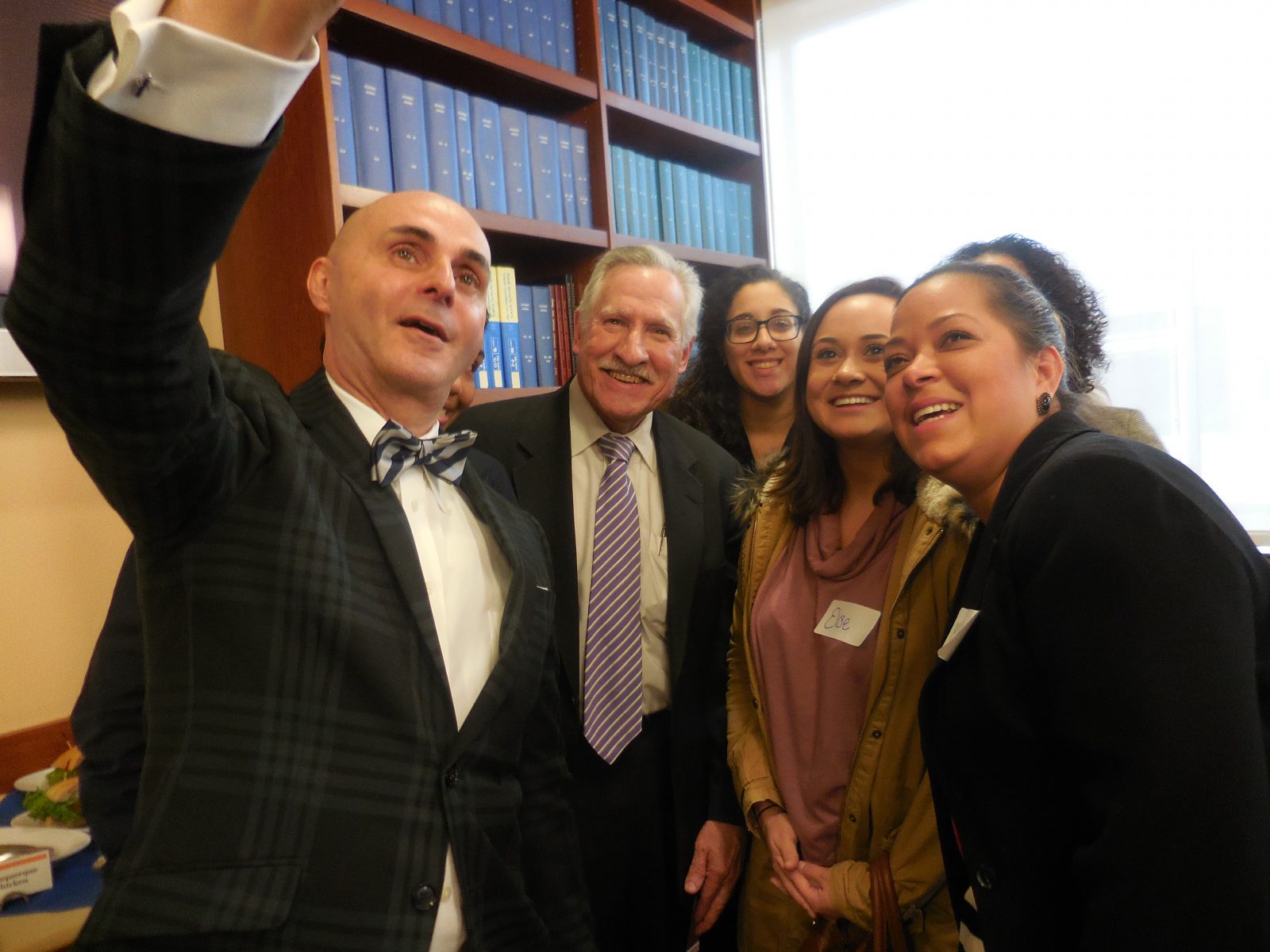WESTFIELD – Massachusetts Commissioner of Higher Education Carlos Santiago spent a part of his first full day at Westfield State University on Thursday at a lunch with student leaders and President Ramon S. Torrecilha in a private room at the dining commons on campus.
Santiago, who was appointed by Governor Charlie Baker in July 2015 after serving for two years as the Senior Deputy Commissioner for Academic Affairs, began by saying that he was delighted to have the new president on board.
“We couldn’t be happier about the outcome,” said Santiago, who participated in the search.
He encouraged students to complete their degrees as soon as possible, stating the importance of public higher education to Massachusetts.
“The future of Massachusetts is tied to the students that stay here,” Santiago said, noting that 66 percent of Massachusetts residents go to public institutions. He also said that the traditional age of high school and college populations has been declining for the past 2-3 years, and will continue to decline for the next 7-8 years, while 80 percent of the jobs in the state require a bachelor’s degree.
“The job needs are dramatic in Massachusetts,” Santiago said. He also said public higher education needs to be supported, and the state doesn’t do it very well, ranking 49th in the country in its support of needs-based students.
“It’s important for us to know what your struggles and successes are,” the Commissioner said.
Torrecilha said that Santiago touched on some of the challenges facing Westfield State students, noting that 93 percent of the students at the University are from Massachusetts. He said there were several students in the room who had to jump through hurdles to get there.
The students then shared their journeys to get into college, and some of the challenges they faced along the way. Some of the students talked about getting involved through summer bridge outreach programs to their communities. Others came through foster care and even experienced homelessness along the way. Several students talked about needing emotional support when they arrived, and finding it in key individuals on campus.
“There’s always that one person,” Santiago said. “People think going to public higher education is easy, just come in, get a degree, and go away.”
In reality, he said, “It’s virtually impossible to do it alone.”
Torrecilha thanked the students for sharing their stories. “The issues and challenges you face are indicative of the changes we have to make,” he said.
“It’s been very uplifting to hear them,” Santiago said.
The lunch ended with Torrecilha and Santiago posing for a selfie with some of the students.


